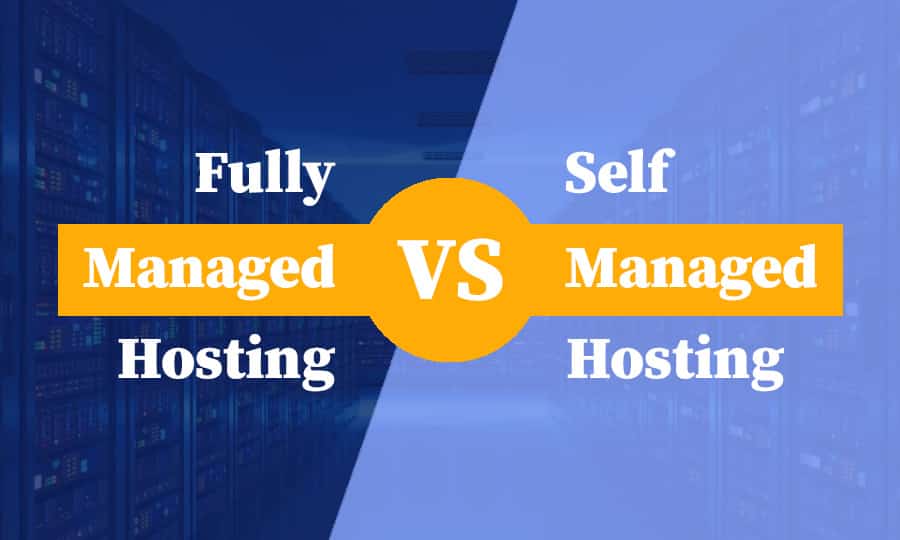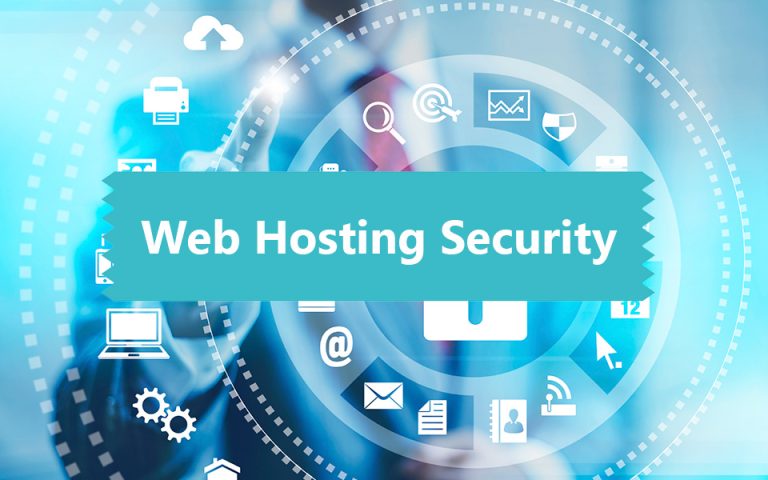Managed Hosting vs Self Hosting: Which is Better?
A. In the ever-evolving landscape of website hosting, the decision between Managed Hosting and Self-Hosting remains paramount. Managed Hosting offers expert support and hassle-free management, while Self Hosting provides complete control and potential cost savings. This blog post delves into the nuances of each option to help you determine the best fit for your website needs. Understanding the distinctions between these two approaches is crucial for optimizing performance, security, and scalability. Let’s explore the intricacies of Managed Hosting vs Self Hosting to guide your decision-making process.
Table of Contents
Managed Hosting vs Self Hosting
| Feature | Managed Hosting | Self-Hosting |
|---|---|---|
| Support | Expert support provided by hosting provider | Self-managed or community support |
| Management | Provider handles server management and maintenance | User responsible for server management and upkeep |
| Control | Limited control over server configurations | Complete control over server settings and setup |
| Scalability | Easily scalable with provider’s resources | Scalability depends on user’s technical expertise |
| Security | Enhanced security measures implemented by provider | User responsible for implementing and managing security measures |
| Cost | Higher cost due to included services and support | Lower initial cost, but potential for higher expenses for maintenance and security |
| Performance | Optimal performance with managed infrastructure | Performance depends on user’s setup and optimization |
Advantages of Managed Hosting
Expert Support and Management
Expert Support and Management: Managed hosting offers users access to a team of skilled professionals who specialize in server management and technical support. With managed hosting, users can rely on the expertise of the hosting provider to handle tasks such as server setup, configuration, maintenance, and troubleshooting. This level of support ensures that any issues or concerns are addressed promptly, minimizing downtime and ensuring optimal performance for the website. Additionally, the provider’s team can offer valuable guidance and recommendations to optimize the hosting environment based on the user’s specific needs and requirements, providing peace of mind and allowing users to focus on their core business activities.
Scalability and Performance
Scalability and Performance: Managed hosting services are designed to offer seamless scalability and optimized performance for websites and applications. Hosting providers typically utilize advanced infrastructure and technologies to ensure that websites can handle fluctuations in traffic without compromising performance. With managed hosting, users can easily scale their resources up or down as needed, allowing for efficient management of website growth or seasonal spikes in traffic. Additionally, managed hosting environments are often optimized for speed and reliability, with features such as content delivery networks (CDNs), caching mechanisms, and server-level optimizations to ensure fast loading times and smooth user experiences. This ensures that websites hosted on managed platforms can deliver consistent performance under varying conditions, ultimately enhancing user satisfaction and driving business success.

Enhanced Security Measures
Enhanced Security Measures: Managed hosting provides robust security measures to safeguard websites and sensitive data from cyber threats. Hosting providers employ advanced security protocols and technologies, including firewalls, intrusion detection systems (IDS), malware scanning, and regular security audits, to proactively monitor and protect the hosting environment. With managed hosting, users benefit from continuous security updates and patches applied by the provider to mitigate vulnerabilities and strengthen defenses against potential attacks. Additionally, managed hosting platforms often include features such as DDoS protection, SSL/TLS encryption, and secure data backups to ensure comprehensive protection against various security risks. By prioritizing security, managed hosting helps users maintain the integrity and confidentiality of their online assets, instilling trust among visitors and minimizing the risk of data breaches or cyberattacks.
Advantages of Self-Hosting
Complete Control and Customization
Self hosting grants users full autonomy over their hosting environment, allowing them to customize server settings and configurations according to their specific requirements. Unlike managed hosting, where providers dictate certain limitations, self-hosting empowers users to tailor every aspect of their server setup to suit their unique needs and preferences. This level of control enables users to install custom software, implement personalized security measures, and optimize performance according to their individual specifications. With self-hosting, users have the flexibility to experiment with different configurations and technologies, fostering innovation and enabling them to create a hosting environment that aligns precisely with their goals and objectives.
Cost-Effectiveness
Self-hosting is often more cost-effective compared to managed hosting, especially for users with technical expertise and resources to manage their servers efficiently. With self-hosting, users can avoid recurring subscription fees associated with managed hosting services and have more control over their expenses. Additionally, users can opt for affordable hosting providers or even utilize existing hardware to set up their servers, reducing upfront costs significantly. While self-hosting may require initial investment in hardware and software, the long-term savings can be substantial, particularly for websites with moderate to high traffic volumes. By managing their hosting environment, users can optimize resource allocation and minimize unnecessary expenses, making self-hosting a cost-effective option for budget-conscious individuals or businesses.
Potential Performance Gains
Self-hosting offers the opportunity for potential performance gains through personalized server configurations and optimizations. Users have the flexibility to fine-tune their server settings, hardware specifications, and software stack to maximize performance according to their specific requirements. By carefully selecting components such as processors, memory, and storage devices, users can build a server infrastructure optimized for speed, responsiveness, and scalability. Additionally, self-hosting allows for direct control over resource allocation and utilization, enabling users to allocate resources based on their website’s unique demands. With the ability to implement tailored performance enhancements and optimizations, self-hosting can lead to significant improvements in website speed, load times, and overall user experience compared to managed hosting solutions.
Key Considerations for Choosing Between Managed and Self-Hosting
Website Requirements and Goals
Assess your website’s specific requirements and goals to determine which hosting solution best aligns with your needs. Consider factors such as website traffic volume, expected growth, performance demands, and resource-intensive applications or features. If your website requires high availability, reliability, and scalability, managed hosting may be the preferred option due to its robust infrastructure and expert support. Alternatively, if you prioritize complete control, customization, and cost-effectiveness, self-hosting may be more suitable, especially for users with technical expertise and specific performance requirements. Define your website’s objectives, functionality, and target audience to ensure the chosen hosting solution can effectively support your website’s success and long-term growth.

Budget Constraints
Assessing your financial limitations is crucial when choosing between managed and self-hosting. Managed hosting typically involves higher upfront costs due to subscription fees, but it offers convenience and expert support. Conversely, self-hosting may require initial investments in hardware and software, but ongoing costs are generally lower. Consider your budget allocation for hosting expenses, including hardware, software licenses, and maintenance. Evaluate the total cost of ownership for each option, factoring in both upfront and recurring expenses, to ensure that your chosen hosting solution aligns with your financial constraints and provides the best value for your investment.
Technical Expertise Available
Technical Expertise Available: Consider the level of technical expertise within your team or organization when deciding between managed and self-hosting. Managed hosting is ideal for users with limited technical knowledge or resources, as it provides expert support and handles server management tasks. This option is suitable for businesses or individuals who prefer to focus on their core activities without worrying about server maintenance. In contrast, self-hosting requires a higher level of technical proficiency to set up, configure, and manage servers effectively. If you have a skilled IT team or access to technical resources, self-hosting can offer greater flexibility and customization. Assess your team’s capabilities and resources to determine which hosting option best aligns with your technical expertise and requirements.
Desired Level of Control
Evaluate your preference for control and autonomy over your hosting environment when choosing between managed and self-hosting. Managed hosting offers convenience and peace of mind by delegating server management tasks to the hosting provider, which may involve some level of control limitations. This option is suitable for users who prioritize ease of use and prefer to rely on experts for technical support and maintenance. On the other hand, self-hosting provides complete control and customization over server configurations, allowing users to tailor the hosting environment to their specific needs and preferences. If you require full control over software installations, server settings, and security measures, self-hosting may be the preferred option. Consider your desired level of control and flexibility to ensure that your chosen hosting solution aligns with your requirements and objectives.
Conclusion
In the debate between Managed Hosting and Self Hosting, the right choice hinges on individual priorities and resources. Managed Hosting offers convenience and expert support, ideal for those seeking hassle-free management. Conversely, Self-Hosting provides unparalleled control and customization, suited for users with technical expertise and specific requirements. Ultimately, weighing factors such as budget, technical proficiency, and desired level of control is crucial. Whether prioritizing ease of use or fine-tuned customization, selecting the appropriate hosting solution ensures optimal performance and scalability. By aligning hosting choice with unique needs, individuals and businesses can pave the way for successful online ventures.
Read More How Managed Hosting Improves Website Performance?
FAQ’S
What is Managed Hosting?
Managed hosting involves outsourcing server management tasks to a hosting provider for expert support and assistance.
What are the benefits of Self-Hosting?
Self-hosting offers complete control over server configurations, customization options, and potential cost savings.
How does Managed Hosting differ from Self-Hosting?
Managed hosting provides convenience and expert support, while self-hosting grants autonomy and control over server management.







